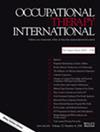南非中部职业治疗临床实践中的知识转移概念图。
IF 0.9
4区 医学
Q3 REHABILITATION
引用次数: 0
摘要
导言:经验证据证实,各种类型的知识(命题知识、程序知识、个人知识和客户知识)都有助于循证实践(EBP),并应在临床实践中加以应用,为提供优质服务提供依据。然而,目前还不清楚在临床实践中如何综合运用各种类型的知识。鉴于这种认识上的差距,目前的研究试图构建南非中部临床实践中知识转移的概念图。研究方法:研究采用了定性方法,并从探索职业治疗临床实践中知识转移情况的范围综述、与在南非中部工作的职业治疗师进行的九次半结构式访谈以及 Q 法调查中获得了用于构建概念图的数据。结果:概念图构建过程提供了一个多维、多向的概念图,包括四个概念(理论与研究、实践经验、患者与治疗师的关系、患者在临床实践中的声音)和四种知识类型(命题知识、程序知识、个人知识和客户知识)。结果表明了知识类型的整合,并证实了临床实践中的知识转移是一个复杂而持续的过程。结论概念图在南非尚属首次,它提供了南非中部临床实践中知识创造和转移的实证证据。概念图可为患者、职业治疗师和学者等所有利益相关者之间的合作提供一个框架,以制定实践指南和职业结果测量方法,支持循证临床实践。本文章由计算机程序翻译,如有差异,请以英文原文为准。
A Conceptual Map of Knowledge Transfer in Occupational Therapy Clinical Practice in Central South Africa.
Introduction: Empirical evidence has confirmed that all types of knowledge (propositional, procedural, personal, and client) contribute to evidence-based practice (EBP) and should be transferred in clinical practice to inform quality service delivery. However, it is unclear how the integration of the types of knowledge that are transferred in clinical practice manifests. Given this gap in understanding, the current research sought to build a conceptual map of knowledge transfer in clinical practice in central South Africa. Method: A qualitative approach was followed, and data to build the conceptual map was obtained from a scoping review that explored the landscape of knowledge transfer in occupational therapy clinical practice, nine semistructured interviews with occupational therapists working in central South Africa, and a Q Method survey. Results: The conceptual map-building process delivered a multidimensional, multidirectional conceptual map consisting of four concepts (theory and research, practice experience, patient-therapist relationship, and patient's voice in clinical practice) and four types of knowledge (propositional, procedural, personal, and client). The results show the integration of the types of knowledge and confirm that knowledge transfer in clinical practice is a complex and ongoing process. Conclusion: The conceptual map, a first of its kind in South Africa, presents empirical evidence of knowledge that is created and transferred in clinical practice in central South Africa. The conceptual map might provide a framework for collaboration amongst all stakeholders, such as patients, occupational therapists, and academics, to produce practice guidelines and occupational outcome measures to support evidence-based clinical practice.
求助全文
通过发布文献求助,成功后即可免费获取论文全文。
去求助
来源期刊

Occupational Therapy International
REHABILITATION-
CiteScore
2.50
自引率
6.70%
发文量
121
审稿时长
>12 weeks
期刊介绍:
Occupational Therapy International is a peer-reviewed journal, publishing manuscripts that reflect the practice of occupational therapy throughout the world. Research studies or original concept papers are considered for publication. Priority for publication will be given to research studies that provide recommendations for evidence-based practice and demonstrate the effectiveness of a specific treatment method. Single subject case studies evaluating treatment effectiveness are also encouraged. Other topics that are appropriate for the journal include reliability and validity of clinical instruments, assistive technology, community rehabilitation, cultural comparisons, health promotion and wellness.
 求助内容:
求助内容: 应助结果提醒方式:
应助结果提醒方式:


